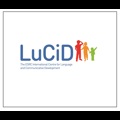
Background
Back in 2017/18, we teamed up with literacy charity, Beanstalk, and book-gifting charity, Dolly Parton’s Imagination Library UK, to deliver ‘Story Starters’, an innovative project that aimed to boost the language and communicative development of nursery school children via a volunteer-led shared book reading intervention.
Funded by the Players of the People’s Postcode Lottery, the project set out to recruit and train 600 Story Starter volunteers to give one-to-one support using high-quality literacy resources, to 1,800 disadvantaged children between 3 and 5 years old.
LuCiD’s role was to evaluate the efficacy of the intervention using a randomised controlled trial (RCT) to test whether it had any significant effect on children’s language development. The findings have been collated into a report and are summarised below.
Method
The RCT element of the project followed 198 children who took part from 24 pre-schools in the Merseyside area, where trained volunteers delivered the 24-week Story Starters shared reading intervention. Within each setting half the children were randomly assigned to receive the Story Starters intervention and the other half to a ‘wait list’ control group. This enabled us to compare the two groups to see whether the intervention had any impact beyond the progress children generally make over time. Volunteers attended the nurseries twice weekly to deliver two 20-minute, one-to-one interactive reading sessions with each child from the intervention group.
Children’s language skills were assessed at three time points. Our researchers from the University of Liverpool conducted language assessments of each child using standardised tests (BPVS, PIPA, CELF) prior to the intervention, immediately after it, and then again 24 weeks later. This allowed them to collect a baseline and then measure immediate effects as well as longer term ones. It was predicted that children in the Story Starters intervention group would show larger gains in their language skills than children in the wait-list control group.
We also took measures of dosage, by tracking the number of sessions each child attended, and fidelity, by video recording sessions in week 12 and coding these for dialogic reading behaviours.
Findings
Overall we found no difference between the language outcomes for children in the Story Starters intervention group and the ‘wait list’ control group. Whilst children in both groups made considerable progress, children in the intervention did not show significantly larger gains on any of the language outcome measures than the children in the wait-list control group. We therefore found no evidence that the Story Starters intervention boosted the language skills of the children in the current study.
We looked at whether the number of sessions children attended or the quality of the sessions made a difference to the children’s language outcomes. We found no indication that the number of sessions attended or the quality of the sessions had an impact on the gains the children made on any of the language measures. There is therefore no reason to conclude that increasing the number or quality of the sessions provided by volunteers would increase the effectiveness of the intervention.
Conclusion
The findings indicate that Story Starters did not boost pre-school aged children’s language skills. These results are obviously disappointing, but they do illustrate how difficult it can be to intervene effectively to increase children’s language skills, particularly in a context in which the population as a whole is already receiving substantial support in the form of high quality nursery provision, and against a background in which even the language skills of the control group are developing quite rapidly. In short, there are no guarantees that even well-designed interventions will have positive effects on children’s language skills, and it is essential that the effects of such interventions are properly evaluated using an RCT methodology.
Read the full Story Starters Evaluation Report
Find out more about using randomised controlled trials to evaluate interventions
You can also read the case study which outlines the project.

